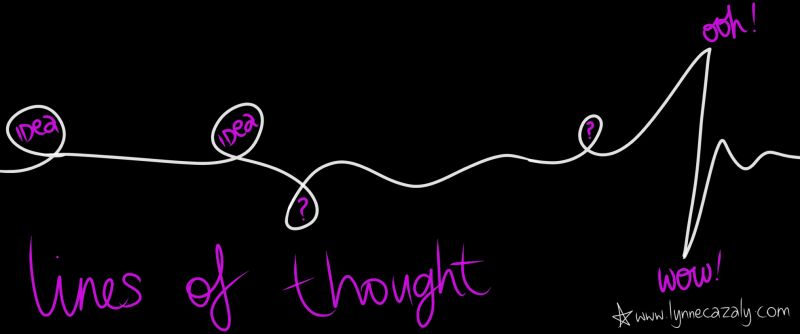Lines of thoughts
 Wednesday, September 15, 2021 at 3:34PM
Wednesday, September 15, 2021 at 3:34PM  What is the stuff you like thinking about? How does it connect to other topics you like thinking about?
What is the stuff you like thinking about? How does it connect to other topics you like thinking about?
Is there a line or thread that runs through it all?
Some people are straight line thinkers. The connections between their ideas, thoughts and themes are straight lines.
Others are zig-zag thinkers. Their ideas and imaginings are here ... and there.
Still others ‘go with the flow’, open to wherever their thinking takes them. A little more organic perhaps 🌱
This is what makes us unique.
It doesn’t really matter what you like to think about.
But if you can find the theme or thread and see the ‘bigger picture’ that connects them all, you go a long way to learning more about yourself and how you make sense of the things that happen in your world.
I love posing the ‘desert island’ question : if you and I were stuck on a desert island and could only talk about two or three topics, what would they be? 🏝
Thinking about what you think about ... that’s a powerful thought among many.
Make some lines and connections between your thoughts.




















